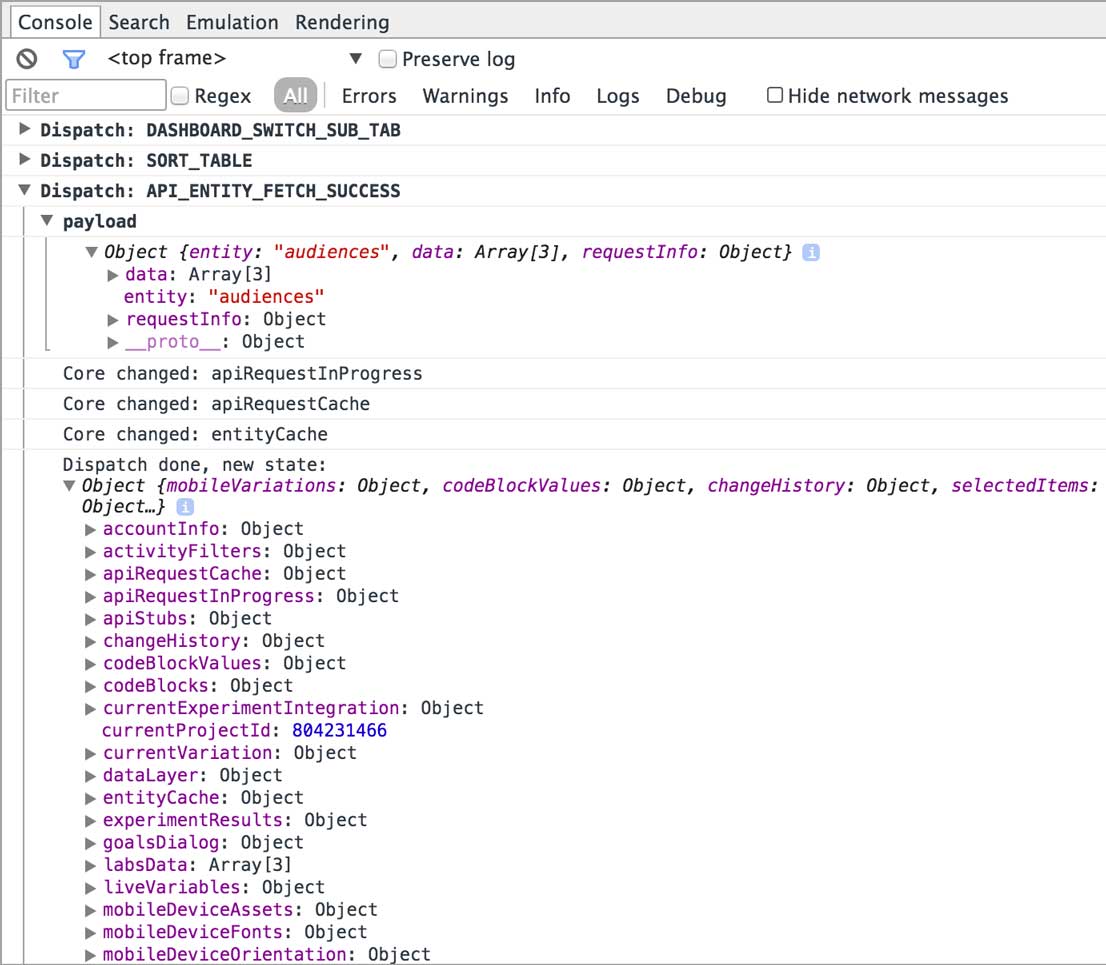Tested & Production Ready
Maintained by Optimizely
Optimizely has been using NuclearJS in production since 2014 and will offer long term support and a stable API.
Easy debugging
With NuclearJS' built in logger you can inspect your application state from the beginning of time. NuclearJS makes tracking down difficult bugs a breeze, allowing you to focus more time writing code.
Testable
When building with NuclearJS there is never a question of "How do I test this?". There are prescribed testing strategies for every type of thing you will build with NuclearJS.
Prescribed code organization structure
For large codebases the prescribed way of organization is to group all stores, actions and getters of the same domain in a module.
This method of code organization is extremely portable, making it almost trivial to refactor, split code into multiple bundles and create contracts between modules.
In fact, Optimizely's codebase has over 50 modules and is growing everyday. Using this pattern makes it easy for teams to consume other teams modules, leading to great code reusability.
